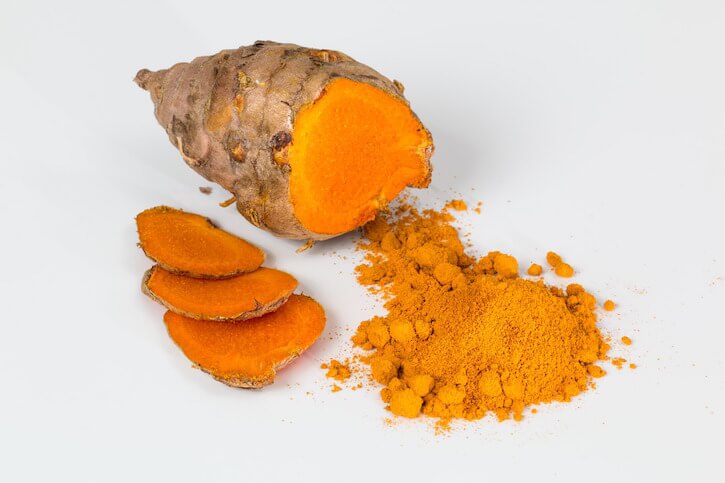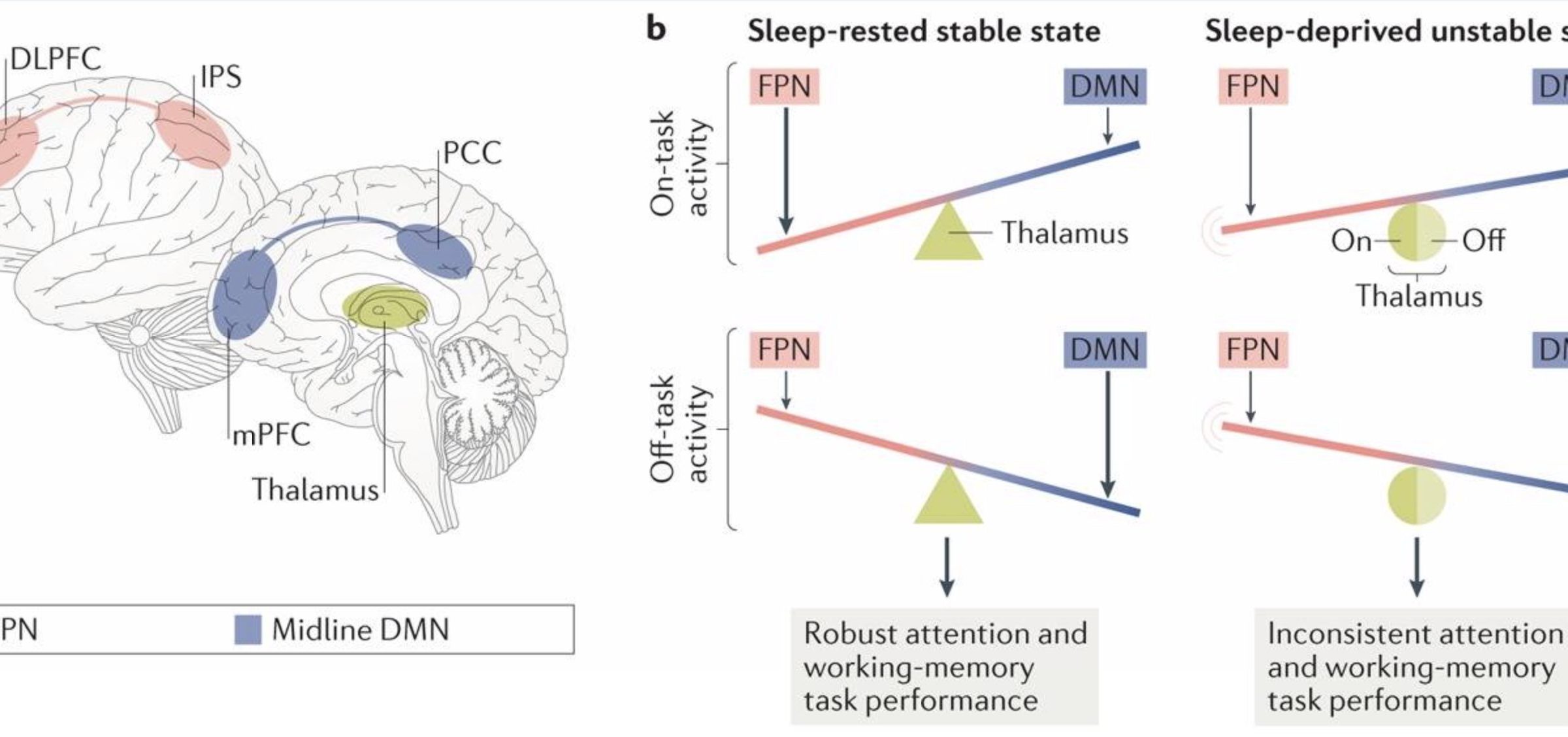Nature Knows and Psionic Success
God provides
5 lesser known benefits of exercise

One of the common characteristics of people who live long well is that they move their bodies every day. And there are many documented benefits of adopting a regular fitness routine, including decreasing your risk of heart disease, stroke, and diabetes. Additionally, whether you want to lose weight, prevent depression or just look better, you can accomplish all of these goals and more by exercising regularly. Exercise is beneficial for many areas of your life, extending far beyond impacting physical appearance. In fact, it can also improve your mental and emotional health. Here are five benefits of exercise that may surprise you: 1. Improved cognitive function Studies have shown that regular aerobic exercise that gets your heart pumping, boosts the area of your brain that’s involved in controlling your verbal memory and learning skills . Exercise also stimulates the release of chemicals in the brain that affect the health of brain cells and the growth of new blood vessels in the brain. Yes, that means that working out can help prevent dementia. 2. Better mood Feeling down? Exercise! In fact, exercise is a natural antidepressant. When you increase blood flow to your brain, it releases endorphins and serotonin, which are your body’s natural antidepressants. In this way, it can help improve your brain chemistry in a positive way. If you’re dreading your workout, just remember that you’ll feel much better when it’s over. 3. Improved sleep patterns A regular workout routine can help you fall asleep faster, sleep longer and improve overall sleep quality. Studies show that exercise increases the time your body spends in deep sleep, which is the most physically restorative phase of sleep. Deep sleep helps boost immune function, supports cardiac health, and controls stress and anxiety. 4. Reduced stress and anxiety Increasing your heart rate […]
Being sad makes you old: Depression increases your brain age

( Natural News ) It is completely normal to feel sad sometimes. Relationship problems, the loss of a loved one in death and other changes in circumstance can cause a temporary loss of joy. This is normal and nothing to be concerned about. However, when the sadness lingers, you no longer feel any interest in things that previously made you happy, you experience loss of appetite, and your energy levels are low for weeks on end, you could be dealing with clinical depression. Sadly, this type of depression is far more widespread than many of us realize. According to the National Institute of Mental Health , major depression is one of the most common mental disorders in the country. In one survey, over 17 million American adults reported having had at least one depressive episode in the preceding year, with the greatest levels of depression being felt by those between the ages of 18 and 25. These statistics are especially concerning when viewed in conjunction with the results of a study conducted by researchers from the University of Sussex and published in the journal Psychological Medicine . This study found that there is a clear link between depression and an increased risk of dementia and overall cognitive decline in later life . Depression ages your brain As reported by Science Daily , earlier studies had already confirmed a link between depression and dementia. However, this particular study took it a step further, proving a link between depression and a general decline in total cognitive function. For their study, the research team analyzed the results of 34 longitudinal studies to determine the effects of depression on long-term cognition. The review involved studies with more than 71,000 participants, some of whom had been diagnosed with depression, while others were exhibiting the […]
Mesonutrients: What You Need to Know about the Super Power Behind Your Superfoods

Mesonutrients – the latest nutritional buzzword– are being held up as the explanation for the powers of so-called superfoods . WH puts these mini heroes under the microscope. Much like weekends, the hippest word in wellness serves as proof that the good stuff resides in the middle. Meet the mesonutrient. Translated literally from the Greek for ‘inside’ or ‘middle’, it refers to apart of the nutrient you’ve likely never concerned yourself with before – the innards. Related Story ‘I Quit Alcohol – Here’s What It Was Really Like’ ‘They’re the active compounds found within so-called “superfoods”,’says clinical specialist dietitian Holly Dempsey. We suspect you’re already well-versed in the existence of some mesonutrients, and you’ve probably been tapped into this trend long before they got this buzzy new moniker – curcumin, for instance, found in turmeric , is the reason the humble latte had a wellness upgrade. But others (see: berberines, residing in dried goldenseal root) are a little more niche. [We earn a commission for products purchased through some links in this article.] So, if we’ve known about the existence of mesonutrients for ages, why are they being talked about as if they’re the cutting edge of nutritional science? While you’ll find mesonutrients in the food and drink (tomatoes, pomegranates and berries, to name a few) you put away everyday, working these foods in to your diet may not be enough to reap the nutritional rewards. Back to the turmeric latte: the mesonutrient curcumin takes credit for turmeric’s anti-inflammatory properties, but by some estimations you’d have to chug 11 a day in order to benefit from any anti-inflammatory effects. Related Story Should I Eat Protein After a Workout? That mesonutrients are often present in such small amounts has given rise to a trend called ‘meso-dosing ’– using supplements to […]
10 Signs You’re Burning Out (And How To Stop It)

Even the best jobs can lead to burnout. The harder you work and the more motivated you are to succeed, the easier it is to get in over your head. The prevalence of burnout is increasing as technology further blurs the line between work and home. Recent research from the American Psychological Association and the National Opinion Research Center at the University of Chicago reported the following: 48% of Americans experienced increased stress over the past 5 years 31% of employed adults have difficulty managing their work and family responsibilities 53% say work leaves them "overtired and overwhelmed." A Society for Human Resource Management (SHRM) poll found that “burnout from my current job” was one of the top reasons that people quit. Burnout can get the better of you, even when you have great passion for your work. Arianna Huffington experienced this first hand when she almost lost an eye from burnout. She was so tired at work that she passed out, hitting her face on her desk. She broke her cheek bone and had to get four stitches on her eye. “I wish I could go back and tell myself that not only is there no trade-off between living a well-rounded life and high performance, performance is actually improved when our lives include time for renewal, wisdom, wonder and giving. That would have saved me a lot of unnecessary stress, burnout and exhaustion.” –Arianna Huffington Burnout often results from a misalignment of input and output; you get burnt out when you feel like you’re putting more into your work than you’re getting out of it. Sometimes this happens when a job isn’t rewarding, but more often than not it’s because you aren’t taking care of yourself. Before you can treat and even prevent burnout, you need to recognize […]
JointFuel360 Analyzes 10 Scientifically Proven Health Benefits of Turmeric

Turmeric has been touted as a superfood, offering up several health benefits with every serving. But does it live up to the hype, or is it just another passing health food fad like flat-tummy gummies and tea-toxes? A cousin of the ginger root, this bright orange spice is a mainstay in Indian, South Pacific, and Asian cuisine for a good reason. Science has proven that turmeric’s components produce multiple health benefits and may be the most powerful nutritional supplement in existence. As with any supplement, turmeric isn’t a cure-all for all your health issues, so it’s important to have realistic expectations of what it can — and can’t — do. Today, the team at Joint Fuel 360 explains the benefits that research and studies have discovered about turmeric’s impact on your health: 1. Combats Inflammation Short-term inflammation can be a good thing, as it blocks invaders in your body and can help repair damage. But chronic inflammation can lead to a whole set of health problems, including cancer, metabolic syndrome, pain, and degenerative diseases. The JointFuel360 team explains that curcumin is a powerful, natural anti-inflammatory that’s every bit as effective as many anti-inflammatory drugs (without the side effects). 2. Increase Antioxidant Capacity Antioxidants are powerful components that fight off disease, and turmeric could be the key to boosting your body’s antioxidant capacity. Antioxidants protect the body from free radicals that could become cancerous or wreak havoc on your body’s system. 3. Improve Brain Function Many brain disorders like Alzheimer’s and depression have been linked to a decline of brain-derived neurotrophic factor (BDNF), a growth hormone that helps your brain function. Curcumin has been shown to increase BDNF, which results in an improvement in memory and logic. It may also slow or reverse brain-related diseases and age-related decline in brain […]
Don’t Let Bias Block Change

Find out where people are coming from to get them where you’re going Suppose you were caught on the edge of a cliff, being pursued by an angry elephant. Would you stand and fight? Or jump off into the abyss? If you’re like most people, you’d choose the elephant. When faced with a choice between the known and unknown, humans cling to the information gained from past experiences. This has allowed us to make reasonable projections and act accordingly. But it also makes it difficult for us to accept change. When you roll out a new initiative or IT solution, then, you can count on some folks to resist it. It’s easy to write off change-averse people as timid, or stubborn, or old-fashioned. But you’d be missing out on the why . If you want to get around roadblocks to change, learn why they were constructed in the first place. What Is Cognitive Bias? The human brain’s creative side may mislead us into thinking that we have the power to dream up novel scenarios or make wholesale leaps of faith. But the truth is, people can only operate from information they already have. We learn new things all the time, but we can only make sense of them based on what’s already in our memory banks. This is why “the devil you know”—in our case, the elephant—usually wins over the unknown, or whatever lies at the bottom of that cliff. There may be a lovely oasis down there, with a soft mattress to break our fall. But because we know that elephants like peanuts and drink with their trunks, we’re more comfortable jousting with them. In the office, your coworker Jean might not know why she doesn’t like the idea of the new computer program. She might not even […]
Why CBD as well as your Mind Could Be Close Friends (Scientific Approach)
Why CBD as well as your Mind Could Be Close Friends (Scientific Approach) Understanding the means cannabinoids work could be a subject that is difficult put your face around. Nonetheless, with novel research rising 12 months by year, we have the ability to link more dots generate a photo of these healing results. and also as we keep our eyes peeled for brand new discoveries into the industry, One cannabinoid that is particular to be getting all the attention for it self. Of program, we’re dealing with CBD (cannabidiol). From a mood enhancer to a stress-relief health health supplement and a mind protector, CBD’s applications that are vast never-ending. What’s much more fascinating is the benign, non-euphoric manner in which CBD interacts with your minds and figures. Stick to us to discover how CBD affects the human brain. The Endocannabinoid System and Homeostasis Do you realize most of us create cannabinoids obviously? These substances (also called endocannabinoids) take part in managing anything from our moods to conditions that are vital. They travel and function with a designated community within our systems: the endocannabinoid system (ECS). Your body’s ECS is something of branched receptors that are cannabinoid interactwith cannabinoids (both plant-derived and autogenic) to influence physiological procedures through chemical stimuli. It all noises extremelycomplicated, but consider it this means: your memory, mood, appetite, pain administration, as well as other functions that are important managed because of the ECS. Whenever one of these simple functions may be out of stability, the human body obviously synthesizes the cannabinoids it requires to recover homeostasis. In other words, cannabinoids keep a well balanced environment that is internal our systems through an ongoing process called homeostasis, which happens on a mobile degree with every organ, muscle, and system leading to its functioning. The situation arises […]
6 Reasons to eat more onions

( Natural News ) Onions are a staple ingredient in the kitchen. These superfoods belong to the Allium family of flowering plants, and are cousin to another kitchen staple – garlic. Onions are rich in powerful sulfur-containing compounds responsible for their pungent smell, as well as their health benefits. Whether it’s white, yellow, red or purple, and green – all onion varieties are shown to be a healthy addition to your diet. They are rich in antioxidants – Onions are loaded with potent antioxidants. They provide dozens of different types, including quercetin , which is a powerful anti-inflammatory compound. They may prevent cancer – You can avoid the threat of cancer by simply adding more onions to your diet. A study published in the American Journal of Clinical Nutrition examined how often people in Italy and Switzerland consume onions and garlic . Researchers found that those who consumed the most onions and garlic had the highest reduction in cancer risk. They concluded that the more onions and garlic people consumed, the lower the cancer rate. (Related: Red onions found to fight cancer more powerfully than yellow or white onions .) They improve bone density – Consuming onions may improve bone density, especially in perimenopausal and postmenopausal women. In one study, researchers looked at perimenopausal and postmenopausal Caucasian women age 50 and older and found a link between onion intake and bone health. They discovered that women who ate onions more often had better bone density than those who never ate onions. They also reduced their hip fracture risk by over 20 percent. They lower cholesterol – Research shows that onions can lower cholesterol levels. One study published in the Journal of Obstetrics and Gynaecology Research examined overweight or obese women with polycystic ovary syndrome (PCOS). The participants consumed either […]
False promises? Experts say the marketing hype around 5G is misleading

( Natural News ) The 5G Revolution is right upon us, or is it? According to experts with the Global System for Mobile Communications (GSMA), all the hype surrounding 5G is misleading . The 5G networks are “in the early stages” and will only be compatible with select smart phones in the coming years. These 5G compatible phones will be expensive and will rely on 4G networks to get going. The 5G rollout is dependent upon the installation of new towers; ideally new towers and transmitters will need to be installed 500 feet apart from one another. This influx of cell towers will emit short wavelength microwaves and will bombard homes with significant amounts of radiation. Over a million new towers will have to be erected to make 5G work as intended. According to HealthImpactNews , the “small cell” transmitters will be mounted on top of electric utility poles, municipal buildings, schools, and in city parks, on top of street signs, bus shelters, and anywhere else telecom companies wish. There will be no escaping the intense microwave radiation pulsing through people’s homes and communities. The future of 5G smart cities are over hyped and downplay human health risks All the hype surrounding 5G is misleading because of the price people will inevitably have to pay with their health. Developing brains are most vulnerable . Notwithstanding, 5G won’t become a reality for consumers unless mobile operators upgrade their networks with 5G gear made by companies such as Finland’s Nokia or China’s Huawei. Furthermore, phone makers will have to mass produce handsets that contain 5G radios that can hook up to the new networks. Until then, 4G wireless networks will carry most of the load, as 5G networks take time to erect. GSMA experts predict that 5G will only make up […]
Becks Boston on working out with a budget, making exercise a natural experience and more [EXCLUSIVE]
![Becks Boston on working out with a budget, making exercise a natural experience and more [EXCLUSIVE]](https://www.natureknowsproducts.com/wp-content/uploads/2019/07/becks-boston-glamour-shot.jpeg)
Becks Boston writes an exclusive piece for Female First Bright lights, loud music, air-conditioning, swanky membership cards, blinking lights beeping and whirling machines. Modern gyms offer a lot to attract new gym-goers and justify their membership fees, but after a day spent indoors stuck at a computer screen and commuting on a busy train or road, does the idea of being in yet another synthetic environment have you rushing to your workout? Admittedly, the gym’s system is enticing with all the fancy equipment that screams for your attention, but what if you could hit the same goals on a budget? Take a few seconds to consider your current exercise routine; are there changes you can make to enjoy a greener, more natural experience? One that benefits you physically and with a cost-effective mindset? Reduces your carbon footprint rather than adding to it? You can achieve all of these by starting your fitness journey training outdoors. For all of the gym’s “technological” wizardry, the principal behind these machines is to get you to lift, push, pull or move your body. I train my clients in an open, natural environment that restores focus. No matter the weather, being outside is in our DNA; reconnecting with the elements improves cognitive function and offers the chance to be more environmentally friendly. This greener routine transformed my training and the thrill of being able to provide complete total body workouts with little equipment means I can guide my clients to become self-sufficient and do the same. The park is so versatile, but let’s talk about how you get there; the journey from your house or work can be considered as part of the warm-up. Once you’ve done your stretching, prepare a backpack with some full water bottles inside. A one litre water bottle weighs […]
The all-too-understandable urge to buy a better brain

I used to be able to memorize the order of a deck of cards. This was when I worked at the mall food court . I learned because a mean older boy on whom I had a big, destructive crush bought me a copy of Joshua Foer’s pop-science memoir Moonwalking With Einstein , which is about memorizing stuff. In the world of memory competitions, the athletes train their minds with daily practice. The primary tactic they employ is the building of mental “memory palaces” — turning pieces of information into objects and placing them in sequence around a physical space that can be walked through in the mind. So, to memorize a deck of cards, I would assign each card in a traditional deck to someone important in my life. The jack of spades is my uncle Ken. The ace of clubs is my sister Sophie, and so on. I’d flip over three cards at a time, and those three people would be placed together somewhere in my parents’ house, starting with the garage. Once the house was full of 52 oddly-grouped guest stars in my life, I’d go back and convert them into the correct order of the cards in the deck, recite it aloud, and everyone would be impressed. Kind of. (Actual competitive memorizers can do dozens of decks of cards, not just one. And they can do it very fast.) My brain today is so far gone that, I assume, it needs an intervention only the consumer marketplace can provide Training my memory was a fun way to get rid of excess mental energy, itchy and bored as I was during this summer in suburbia, tortured as I was by this doomed crush. I wanted to impress a genius . I did not yet own a […]
Want to Improve Your Performance Under Pressure? Start With These 3 Simple Habits

While I won’t be mistaken for LeBron James or Michael Jordan , I do share the commonality of being a basketball player and performing under pressure. There’s a special type of mental strength needed to perform in high stake athletic competitions or presenting inside the boardroom. Practicing your speech at home and shooting free throws inside an empty gym is one thing. But once the audiences arrive and the rehearsals are a thing of the past–sweaty palms, a rapidly beating heart, and excessive mental chatter can, unfortunately, arrive throwing a wrench into your performance. Why do people shrink under pressure? When you see someone fall short of expectations under pressure, you may be inclined to think that they weren’t prepared enough. But, that’s missing a huge piece of the puzzle. A large percentage of high performers don’t perform well under pressure because their prefrontal cortex went into overdrive. Think of your prefrontal cortex as the commander-in-chief in terms of helping you focus on the specific task at hand. In a recent Harvard Business Review column, Barnard College president and cognitive scientist Sian Beilock explains that "During our normal every day practiced tasks–we’re not paying attention to all the little details of what we are doing. Our prefrontal cortex is largely on autopilot." However, in high stakes situations, it’s a much different portrait. Under these situations, Beilock states, "When the pressure is on, we often start focusing on the step-by-step details of our performance to try and ensure an optimal outcome and, as a result, we disrupt what would have otherwise been fluid and natural." To keep yourself from suffering cognitive overload, here are some simple foundational habits to implement. 1. Prioritize sleep. Whether it’s remembering plays for the hardwood or key facts for the upcoming presentation, your brain is […]
Lifeflower® Breviscapine and Ginseng Plus® Panax Notoginseng™ Extract Receive “Generally Recognized As Safe” (GRAS) Self-Affirmation Status
WALNUT, Calif., July 8, 2019 /PRNewswire-PRWeb/ — Farlong Pharmaceutical, a vertically integrated, plant-based ingredient and supplement company, has received Generally Recognized As Safe (GRAS) self-affirmation status for its ingredients Lifeflower® Breviscapine and Ginseng Plus® Panax Notoginseng™ extract. Lifeflower® Breviscapine, an active flavonoid component extracted from Erigeron Breviscapus, contains more than 90 percent of scutellarin. Scutellarin has been shown to enhance memory, cognitive function and brain health; increase brain circulation; and promote the development of new blood vessels. A series of safety studies were conducted, and the expert panel committee concluded that Lifeflower® breviscapine manufactured consistent with cGMP (Current Good Manufacturing Practice) is GRAS based on scientific procedures for use as an ingredient in yogurt, nutritional bars, smoothies at 84 mg per serving, and dietary supplements at 200 mg per person per day. Ginseng Plus® Panax Notoginseng™ extract, extracted from Panax Notoginseng™ roots, contains more than 75 percent of total saponins, such as notoginsenoside R1, ginsenoside Rg1, Ginsenoside Re, Ginsenoside Rb1 and Ginsenoside Rd. Notoginseng saponins have been shown to enhance heart and brain health, maintain normal cholesterol levels, improve physical performance and stamina, help reduce fatigue, promote radiant skin, and increase heart and brain circulation. Scientific studies led the expert panel committee to conclude that Ginseng Plus® Panax Notoginseng™ extract manufactured consistent with cGMP is GRAS based on scientific procedures for use as an ingredient in sports beverage, yogurt, nutritional bars, smoothies, chocolates and dietary supplements at 200 mg per person per day. For more than 20 years, Farlong has created products using natural and herbal ingredients to promote a healthy and natural life, focusing on top quality ingredients and ancient Chinese roots. Farlong produces formulas from seed to shelf, beginning at their 6,000-acre GAP farm located in Yunnan Province, where the soil acidity, sunlight, temperature, rainfall, pressure and […]
Improve your mood and beat depression without a prescription using these natural alternatives

( Natural News ) Many people suffering from depression rely on their prescribed antidepressant drugs, which have been proven to cause adverse effects and are only making them more sick than ever. If you’re looking for an effective treatment for depressive symptoms without the frightening side effects, look no further than these five natural antidepressants . Cognitive Behavioral Therapy (CBT) Also known as “talk” therapy, CBT aims for mindfulness and enables a patient to make links between behaviors, feelings, and thoughts . This form of therapy helps you gain control of how you process and react to your thoughts or feelings, according to a study published in The British Journal of Psychiatry . Another study, which was published in JAMA Network , showed that people who enter remission from their depression are more than 10 percent less likely to relapse if they stick with CBT. Folate and folic acid Folate is a B vitamin that occurs naturally in certain foods, whereas folic acid is often added to foods and is also available as a supplement. Not getting enough folate can increase your risk of many health problems, including cognitive decline. Additionally, people with lower folate levels tend to exhibit symptoms of depression than those with normal levels. You can get folate from foods like beans, fruits, dark green vegetables, and fruits. You can also take a folic acid supplement to increase your folate levels. Light therapy Light therapy involves regular exposure to an artificial light source to improve overall mood. It is often used to treat people who have Seasonal Affective Disorder (SAD), a type of depressive episode during winter season because of the lack of adequate sunlight. It can also be used by nonseasonal sufferers of Major Depressive Disorders (MDD). Research also reported that depressed individuals who received […]
Intel And Baidu Collaborate On Neural Network Processor For Training

At Baidu Create, an AI developer conference hosted in Beijing last week, Intel has announced that it is working with Baidu on AI hardware and software platforms. Intel and Baidu INTEL Intel and Baidu have a long history of cooperation, and Intel has a range of solutions that help Baidu in its efforts of developing cutting-edge AI technologies. On the hardware front, Baidu is collaborating with Intel on the research and development of Nervana Neural Network Processor for Training (NNP-T), a hardware accelerator optimized for deep learning. Announced in 2017, NNP-T 1000 includes processor cores based on Intel’s Ice Lake architecture to optimize neural networks. Apart from the collaboration on NNP-T, Baidu is also using Intel Xeon Scalable Processors to power its infrastructure running Baidu Brain, an AI platform providing intelligence to internal and external applications. The platform exposes over 100 AI services including, natural language processing, facial recognition, voice processing and recognition among other services. Intel and Baidu have worked on optimizing the hardware based on 2nd Generation Intel Xeon Scalable processors to accelerate performance for workloads incorporating speech synthesis, natural language processing, visual applications, and other scenarios. NNP-T 1000 is expected to accelerate the AI efforts at Baidu by complementing the Xeon Scalable Processor infrastructure by significantly speeding up deep learning training jobs. Baidu is also working towards optimizing its deep learning framework, PaddlePaddle (PArallel Distributed Deep LEarning), for Intel NNP-T. Baidu claims PaddlePaddle to be the first China-based deep learning framework. It is positioned as an alternative to TensorFlow, an open source ML framework from Google. According to Intel, PaddlePaddle was also the first framework to integrate Vector Neural Network Instructions (VNNI). These new enhancements deliver dramatic performance improvements for image classification, speech recognition, language translation, object detection, and other important functions as part of Intel® […]
Nutrition tips to support healthy brain development throughout childhood

Brain development in young children is influenced by many things, but experts focus on three key areas: exposure, experiences and nutrition. (Getty Images) Healthy brain development starts early and continues throughout childhood. A healthy brain influences how well kids learn, pay attention, control impulses , anticipate, plan and make decisions. It also impacts their social-emotional skills , mood and mental health. According to a 2016 Journal of Pediatrics article on the role of nutrition in brain development , the structural and intellectual capacity of the brain is mostly established by age 3. In infancy, the brain’s framework and “information highway” is established. While babies can’t talk or read, they learn from observation, connecting with caretakers and their environment. This process continues in the toddler years, resulting in the emergence of language, social skills and learning through play. In childhood, formal learning, executive skills like planning ahead and decision-making abilities emerge. While brain growth and development still happen in adolescence, a shift occurs. The brain begins to prune itself, removing underutilized neurons and information pathways so more important ones can flourish. Brain development in young children is influenced by many things, but experts focus on three key areas: exposure, experiences and nutrition. Exposure to toxins like lead , as well as infection, stress and trauma can have long-term repercussions on brain development. Likewise, positive or negative experiences can also influence brain development. For example, neglect or abuse can have devastating, lasting effects, while playing with a child or reading stories together are beneficial for brain development. The third key to a healthy brain is nutrition. [ Read: 9 Lessons I’ve Learned About Feeding Kids. ] Nutrients for Healthy Brain Development Many nutrients are needed for normal, healthy brain development, including protein and fat, and micronutrients such as the omega-3 fatty […]
How Much Sleep do Student Athletes Need?

Student athletes are at an interesting crossroads in their lives. During childhood, sport is played for fun and rarely is it anything more than that. Making practice and trying your hardest is all that can be asked of you. Once you get to High School the pressure can begin to mount. Sport is more competitive than ever, and there are real rewards on the line for those who excel. Once you reach college or university, the pressure can be as extremely high, as many professional athletes experience. Particularly in the higher profile sports. In this climate, the student athletes who succeed are going to be the ones who work the hardest, remain injury free, and adapt to the increased pressure. This means that you need to be on top of every aspect of your health. This is where sleep comes into play. In this article we are going to look at the importance of sleep for recovery and sporting performance, we will examine some specific scientific studies that have looked at student athletes and sleep, and we are going to answer the question “How much sleep do student athletes need?”. We’re also happy to recommend our favorite natural sleep supplement, perfect for student athletes, Performance Lab Sleep . More on that shortly. The Importance of Sleep It seems crazy to have to say this, but in an era where #teamnosleep exists and many students are surviving on less than six hours it really cannot be understated: Sleep is vital for health, vitality, and performance. Sleep is a chance for your body to recharge its batteries, it helps to reduce physical and mental fatigue, and has a massive impact on your body at a hormonal level. Studies have shown that a bad night’s sleep can lead to increased appetite, reduced […]
The power of music and your health

You know when you just need to tune into some good music? Or, when listening to a tune, you feel the need to change what is playing? Not only can music soothe nerves, it can also motivate a heart-pumping workout or help lull you to sleep — among other healthy attributes. Music has the power to move you physically, mentally and emotionally. In fact, science confirms the powerful chord that music strikes in all of us not only treats our senses but also stimulates our emotions and connects with our body in a very healthy manner. Listening to tunes that inspire you has been shown to help mitigate stress levels (which has a ton of health benefits), pain and anxiety as well as improve memory, concentration, learning, physical performance, immune system function, relaxation and sleep. Interestingly, scientists have found music stimulates more parts of the brain than any other human function. In fact, there are findings that we are so hard-wired to respond to music that there is potential in music’s power to impact our overall physical and mental health, including the way we learn. And, studies show music is an excellent therapy to help patients heal and recover after a stroke. It can help them regain movement, communicate, and lift their mood at the same time while supporting changes in recovering. Tapping into the superpower of music will help you live a healthier life and make demanding times in your life more manageable. Choosing music that motivates you will make it easier to start that project, get moving, walking or stir you on with other activities you enjoy. And selecting slower music can help to slow down the tempo of those fast-paced thoughts and heart-racing feelings and de-stress. So today, I am writing a prescription for each of […]
Sleep – A Complete Guide To REM Sleep and Sleep Stages

As many as 70 million Americans have a sleep disorder, with over one-third of young adults (20-39 years old) sleeping less than 7 hours per night. [1,9] What’s more, we actually take pride in our ability to shirk off sleep, saying such crass things as “I’ll sleep when I’m dead.” Why do we treat sleep so disparagingly? Probably because we’re an arrogant species that think we’re smarter than we actually are. You see, humans have evolved over 3.8 million years and sleep has been a vital part of that evolution. Related – 25 Tips to Help You Get a Better Night’s Sleep Why else do you think we spend one-third of our natural lives in this passive state? Because sleep is absolutely essential to living a healthy life, and this goes far beyond building muscle or burning fat. Sleep is the time when the body does the majority of its maintenance work, repairing the damage from the previous day and building us anew so that we can tackle the new challenges awaiting us. So, what happens when we don’t get enough sleep? The Consequences of Sleep Deprivation If you’re one of those individuals who so casually casts aside sleep, you might be thinking, “what’s the worst that could happen? I’ll just be a little more tired than usual and need a bit more coffee (and/or pre-workout) to get through the day.” And while all of that is true, being a bit more tired is just the beginning of your problems. Quite simply, when we are sleep deprived, we’re more vulnerable to a laundry list of things, including: Overeating Impaired memory and learning Inability to sustain attention Downregulation of dopamine D2 and D3 receptor availability (which messes with the reward-motivation system in the brain) Diabetes Obesity Anxiety Depression Stroke Heart […]
10 Rules That Lead to Happiness

10 Rules That Lead to Happiness “What was a Buddhist saint doing at the 2014 World Economic Forum in Davos?” asks William Davies in his book The Happiness Industry, published in 2015. The monk, the author argues, like “happiness officers” in business corporations, reflects a trend that has developed over the past decade: various entities are increasingly interested in measuring how people feel, solely to exploit this data for their own political or commercial needs. Brain scientists working for the consumer industry hope to finally discover the “buy button” in our brain, and advertisers for pharmaceutical firms seek research to substantiate the claims of their costly products. The flood of literature and research on happiness in recent years leaves no room for doubt: while half of the population strives to be happy, the other half is busy examining whether the former succeeded in finding happiness. Sophisticated scanners that search for happiness centers in our brain are suddenly replacing our simple subjective feeling: “Yes, I’m happy at the moment.” When the UK’s Office for National Statistics published its first report on happiness in 2012, it was also able to cite regions and jobs in which British citizens were happiest. It appears that the color green has a beneficial effect on our happiness—and we’re not talking about greenbacks here. Rather, green regions in Scotland with breath-taking scenery were home to the happiest people and forest rangers led the list of contented workers. Intuitively, we all understand what the studies show: above a certain level, wealth does not bring happiness, though it can buy a lot of comforts. We also know from experience that many of the moments that give us great pleasure require only modest means or no monetary expense at all. Strangely, even though we all feel that wealth does […]
